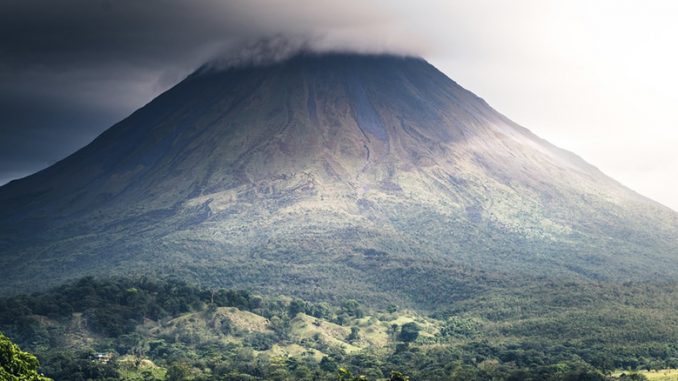
We continue learning from Maria Paz Lobo about ICAFE’s work on coffee sustainability in Costa Rica.
BY SUNGHEE TARK
SPECIAL TO BARISTA MAGAZINE ONLINE
Cover photo by Cosmic Time Traveler for Unsplash
From the editor: Yesterday, we began learning about the feats that Costa Rica is tackling on climate change, especially within the coffee sector. Today, we learn about two more ways the Coffee Institute of Costa Rica (ICAFE) is helping to secure a better future in coffee.
Volunteer Coffee-Picking Projects
Costa Rica, compared to its neighboring coffee-producing countries, depends largely on migrant workers for its coffee harvest. ICAFE stated that around 60% of its total coffee picking labor (74,000 people) are migrants, mainly from Nicaragua and Panama. As a result, with COVID-19 posing huge uncertainty for about 44,000+ coffee pickers for the coming harvest because of closed borders, many producers in Costa Rica—especially smallholder coffee producers—have been faced with a high chance of losing their harvest partially or completely.
Reflecting on the current status of the coffee industry, Maria Paz Lobo says, “a great deal of campaigns have been developed to incentivize locals to pick coffee, but there is still much support needed to reach the total amount of pickers required, especially considering estimates are high for this harvest.”
In its effort to address the immediate need for labor this coffee harvest season, ICAFE and Costa Rica-based nonprofit Bean Voyage launched a project to connect high school and college students who are interested in learning about coffee with coffee-farming families that are in the most vulnerable conditions economically. The project plans to train students in small groups, who will then get connected to smallholder coffee-farming families during peak harvest season. You can read a full description of the project here.
The success of the smallholder coffee-farming families is directly linked to the sustainability of the coffee industry in Costa Rica, as they represent about 92% of the total coffee-farming populations in the country. Their social and economic well-being will help determine the health of the Costa Rican coffee industry.
“For me, one of the best aspects of this project is that it is also replicable and scalable for upcoming years,” says Maria Paz. “(The labor needed during) coffee picking is one of the highest costs for farming families, so being able to cover that cost with volunteers means that families can use that money to invest in renovating, good agronomic practices, or any other action that can later be translated to an increase in productivity. A higher productivity means a higher income, which means probabilities of achieving higher productivity in later years, and so on. This breaks poverty cycles that in agriculture are quite prevalent.”
ICAFE’s effort to pursue environmental aspects of sustainability is also shown through its partnership with other governmental entities. NAMA-CAFÉ (NAMA meaning Nationally Appropriate Mitigation Actions) was the first agricultural NAMA in the world, launching about five years ago in Costa Rica, with the goal to reduce the carbon footprint in coffee, among other agricultural products. Through the initiative of NAMA-CAFÉ, over 62 mills have been certified as low-carbon mills, and more than 8,000 farmers have been trained in good agronomical practices.
Maria Paz says that “our goal as a country is to be 100% low-carbon coffee in the next years, while also using this platform to work towards climate change adaptation. The NAMA-CAFÉ program generated many lessons learned that are now being implemented in Carbon Footprint Reduction at company level and national level in other countries.”
While this list is nowhere near exhaustive to reflect many other projects aimed at promoting sustainability in coffee in Costa Rica, these are some that involve multi-stakeholders with the leadership of ICAFE.

ABOUT THE AUTHOR
Sunghee Tark is the co-founder of Bean Voyage, a feminist organization that collaborates with smallholder womxn coffee producers to build an equitable coffee value chain. She is also a freelance coffee writer, Specialty Coffee Association LEAD Scholar, and Re:co Fellow.

